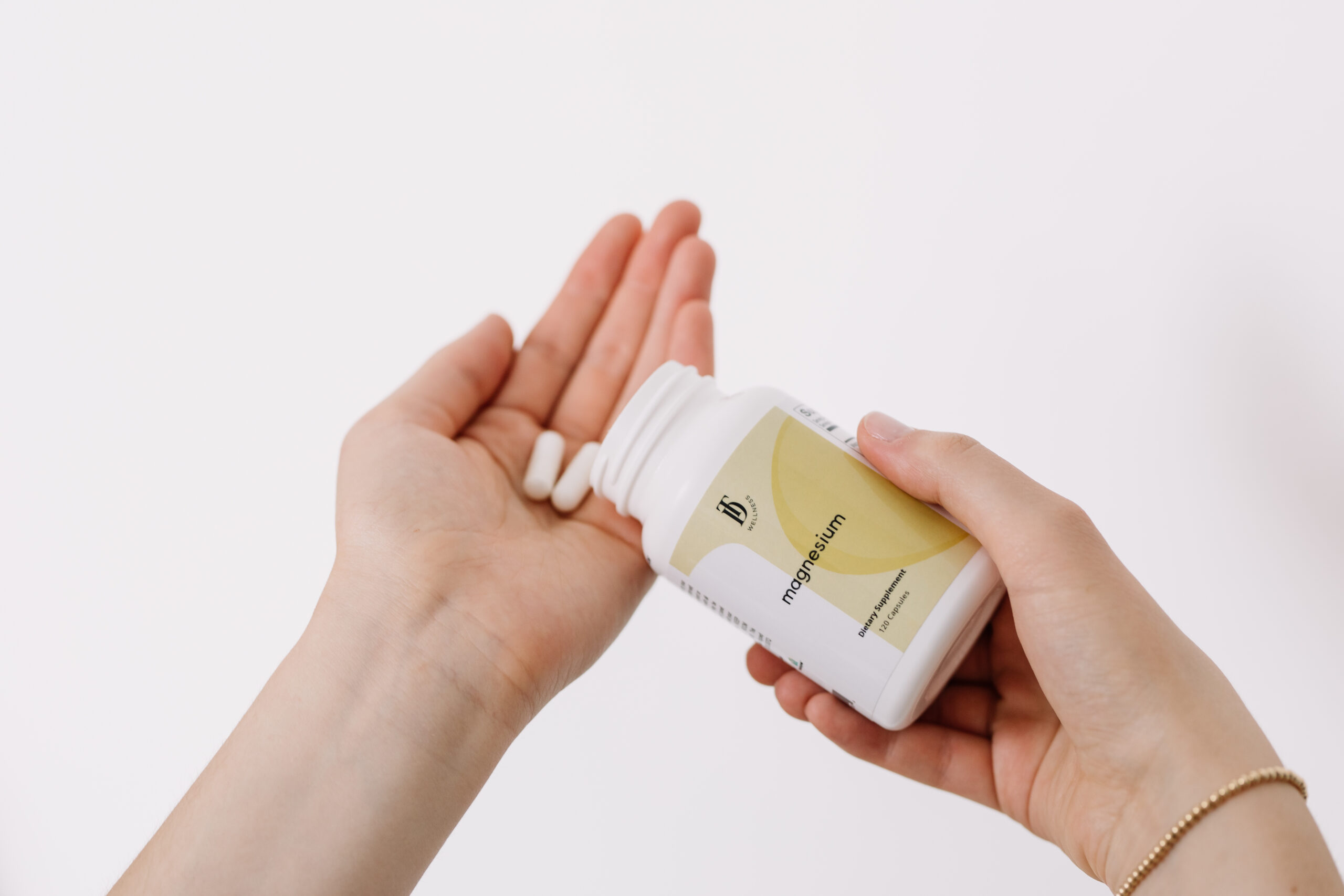Hidden Dangers of Glyphosate: Side Effects of Roundup

A weedless yard is pretty to the eyes, but it’s not so appealing to your health if you use toxic chemicals to achieve it. While it may be an easy, quick fix to rid those dandelions from popping up, a weedkiller such as Roundup isn’t worth the devastating impact it has on your health.
If you’re thinking, “Don’t worry, I don’t spray my yard with Roundup,” you still might not be in the clear. Unfortunately, glyphosate is rapidly making its way into our daily environment, whether you like it or not.
What Is Glyphosate?
Glyphosate is the main ingredient in the weedkiller, Roundup. While you may have seen this for backyard weed spray, Roundup is also a weedkiller and harmful herbicide widely used for large-scale crop farming.
Where is Glyphosate Found?
Glyphosate can be found on fruits and vegetables, in meat, and in packaged foods. In 2014 alone, American farmers dumped 240 million pounds of herbicides containing glyphosate on common crops like corn, wheat and soy!
Because plants are so heavily sprayed with weedkillers, when livestock eats those crops, the glyphosate toxin becomes concentrated in their collagen. When we consume conventionally raised animal products, we then consume that toxin in the concentrated form. We then experience the negative health consequences of glyphosate consumption.
Places Glyphosate is Found:
-
Fruit and Vegetables
-
Soy, Corn, Wheat
-
Meat and Dairy
-
Packaged Foods
-
Children’s cereal (like Cheerios!)
-
Golf courses
-
Waterways/water sources
Research on Glyphosate
The impact glyphosate can have on your health can be astounding. If you search for research studies on glyphosate, you’ll find thousands of studies. While it can be a lot to dig through, be sure to read into the studies. Who is the research funded by? What is the dosage of glyphosate? How long was the study conducted? Were other ingredients alongside glyphosate? Were the frequency, total amount, and accumulation of glyphosate considered?
Studies that were conducted over longer periods of time show more negative impacts than short-term studies on the health effects of RoundUp. Also, when glyphosate is combined with other ingredients (which is a common occurrence in weedkillers), it has been shown to exacerbate the negative health impacts compared to glyphosate alone. Since toxin exposure may take years to manifest, short-term studies showing no health impact don’t necessarily mean it’s safe. It just means that exposure could slowly be causing damage to your cells, which may ultimately show up as a chronic illness or disease in the future.
Side Effects of RoundUp
The negative effects of glyphosate on human health are no longer a secret. While brief exposure may be labeled low toxicity or “not likely to be carcinogenic,” the issue is that most of the population doesn’t just have brief exposure to low levels. The majority of the population is exposed to glyphosate every single day (and sometimes in concerning amounts!) for a long period of time. Over time, these toxins can impact your health.
Side Effects of Glyphosate
-
Leads to hormonal imbalances
-
Causes oxidative stress
-
Is a probable carcinogen
-
Causes damage to your gut microbiome
Leads to Hormonal Imbalances
Glyphosate may cause endocrine disruption. One study showed how RoundUp decreased the levels of circulating testosterone, delayed puberty in male rats and impacted sperm function. Another study showed how exposure to low doses of glyphosate might alter ovarian and uterine function, which may impact female fertility.
Causes Oxidative Stress
Oxidative stress causes an excess of free radicals which can damage DNA, cells, and proteins. This is a large contributor to systemic inflammation. Over time, these negative effects manifest into chronic issues/diseases like Alzheimer’s, Parkinson’s Disease, fatigue, aging, and cancers.
Is a Probable Carcinogen
In 2015, the World Health Organization’s International Agency for Research on Cancer (IARC) listed glyphosate as a known substance capable of causing cancer. Because it is so widely used in our country, it’s extremely concerning for the entire population’s health, where cancer rates are already elevated.
Severely Depletes Manganese Levels
Small amounts of manganese are essential for biological processes in your body. Glyphosate, however, has been shown to deplete these levels. Manganese is vital for antioxidant protection, mitochondrial protection and even sperm motility!
Causes Damage to Your Gut Microbiome
A Manganese deficiency can lead to gut dysbiosis by reducing Lactobacillus bacteria. Lactobacillus plays a role in numerous functions, including breaking down food, absorbing nutrients, and fighting off harmful organisms that may cause issues like diarrhea.
These biological issues can lead to:
-
Cancers
-
Kidney failure
-
Liver damage
-
Fertility problems
-
Congenital disabilities
-
Neurological diseases
-
Anxiety disorders
Why isn’t glyphosate banned?
Canada, Australia, and Costa Rica are just a few of the numerous countries that have restricted or banned glyphosate because of its potential link to cancer. The United States? Not so much…yet.
While some states are making the transition to banning this toxin, the country isn’t fully there yet. This is mainly because politics (and money) are heavily interconnected with the RoundUp company. This significantly influences whether these chemicals are deemed “safe.” Hopefully with mounding research, the government will take the next step in banning this toxic ingredient for good.
How to Reduce the Side Effects of Roundup
-
Buy organic foods as much as possible (especially the Dirty Dozen list) because they have lower pesticide residues.
-
Buy from local farmers who support sustainable farming.
-
Order from Butcher Box for clean meats.
-
Avoid all GMO foods.
-
Test your body’s exposure levels with Functional Medicine lab testing if you suspect toxicity.
-
Support your natural detox pathways.
-
Take a high-quality probiotic to restore the gut microbiome.
-
Avoid other environmental toxins by investing in a high-quality water filter and air filter. I personally use the Aquasana water filtration system and Austin Air Hepa Filter.
If you’re interested in learning more about environmental toxins and how to avoid them, you’ll definitely want to check out my blog, Is Your Home Making You Sick? Hidden toxins in your home. It’s crazy how much toxic exposure we experience on a daily basis!
Stay Updated With Exciting News at Taylor Dukes Wellness!
We are always working on new ways to serve you and your family on your health journey. Be the first to know about new offerings, health articles, and more by clicking here and filling out your information so we can be in touch.
Share This Post:
Your Wellness Deep Dive
- Be the first to learn about new healthy living resources, blog posts, and exclusive TDW offerings by getting on my insider list.
- Find healthy living products with ingredients you can trust – the same ones I personally use for myself and my family – in the TDW Shop. Check out our protein powders, electrolytes, supplements, and more!
- Get personalized support through the TDW Community. When you become a member, you get access to functional medicine expertise from me and my team, functional medicine lab testing and 1:1 consults, a digital library of exclusive wellness content, live monthly Q&As with me, and so much more!
YOU MAY ALSO LIKE:
Helping you get your gut right, improve energy, boost immunity, balance hormones, sleep better and look + feel your best
DISCLAIMER
PRIVACY POLICY
TERMS + CONDITIONS
ACCESSIBILITY
© 2025 Taylor Dukes Wellness
LEARN
SHOP
ABOUT
TDW Community
Free Guides
Blog
TDW Store
Fullscript
About Taylor
Press
Contact
COOKIE POLICY
SITE CREDIT
Trusted Products



